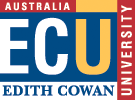COURSE INFORMATION
Disclaimer
This course information may be updated and amended immediately prior to semester. To ensure you have the correct outline, please check it again at the beginning of semester.
| N47 / H08 Master of Education | ||||||||||||||||||||||||||||||||||||||||||||||||||||||||||||||||||||||||||||||||||||||||||||||||||||||||||||||||||||||||||||||||||||||||||||||||||||||||||||||||||||||||||||||||||||||||||||||||||||||||||||||||||||||||||
INTRODUCTION The N47 Master of Education (M.Ed.), is a Masters program by coursework in the School of Education. It provides an opportunity for motivated professionals concerned with educational practice to undertake advanced coursework in a field of particular interest to them and to gain an internationally recognised postgraduate qualification. A study of the advanced coursework units will provide students with knowledge and understandings across a range of specialist areas suited to each student's needs and choices. It will support graduates in professional advancement as teachers, leaders and administrators.
The M.Ed. (code N47) degree requires two semesters (eight units, total 120 Credit Points) of full-time study or its equivalent part-time. Students complete the two required units (1 x 20 + 1 x 10 = 30 Credit Points) and six elective units (6 x 15 = 90 Credit Points).
Note: The Master degree is not an introductory teaching qualification, nor is it a licence to teach.
FEES This is a fee paying course.
Students can apply for an interest-free loan for fee-paying postgraduate courses Postgraduate Education Loan Scheme (PELS) (www.hecs.gov.au/pels.htm or 1800 020108)
COURSE LOCATION AND MODE OF STUDY Students wishing to study full-time should ensure that they discuss their study plan with the appropriate Course Coordinator before committing themselves to full-time study.
Academic Qualifications (i) a Bachelor of Education degree; or (iv) a three year degree or equivalent and a Graduate Certificate in Education or documented professional experience.
Professional Experience
Additional Evidence Documentation relating to the applicant’s professional experience may be required. Applicants whose first language is not English and who have not previously studied in an English medium university must provide evidence of their capacity to undertake advanced studies through English. This evidence may include scores attained on TOEFL or IELTS examinations.
CREDENTIALLED PROFESSIONAL LEARNING (CPL) Students can apply credentialed professional learning (CPL) for credit in the M.Ed. through the School’s Institutes, Workshops and Short Courses. A professional development activity taught by ECU (eg. Winter/Summer Institute) is accepted as CPL and can be used as partial credit generally 5 credit points, one third of a M.Ed. coursework unit. Three CPL modules (3x5 credit points) equate to one M.Ed. coursework unit.
Students who have completed a level five ECU Graduate Certificate of Education normally gain entry into the M.Ed. with 4 units credit/advanced standing.
COURSE STRUCTURE
A coherent set of Level 5 units should be planned in consultation with the Course Coordinator. There is a strong teaching and learning and curriculum focus in the M.Ed. with four units being offered and with most students choosing two or more of these units. If a student requires further depth in any one area then they can choose either one or two independent study units (EDU6188/6189).These units involve the in depth study of a selected topic of interest. Students may conduct a school/work-related project, a small piece of research or develop and/or evaluate an educational resource, such as a curriculum module, software package, assessment resource, policy document, or a reasoned professional reflection or critique. |
||||||||||||||||||||||||||||||||||||||||||||||||||||||||||||||||||||||||||||||||||||||||||||||||||||||||||||||||||||||||||||||||||||||||||||||||||||||||||||||||||||||||||||||||||||||||||||||||||||||||||||||||||||||||||
| ||||||||||||||||||||||||||||||||||||||||||||||||||||||||||||||||||||||||||||||||||||||||||||||||||||||||||||||||||||||||||||||||||||||||||||||||||||||||||||||||||||||||||||||||||||||||||||||||||||||||||||||||||||||||||
Last Updated - Higher Education: 18/11/2004
